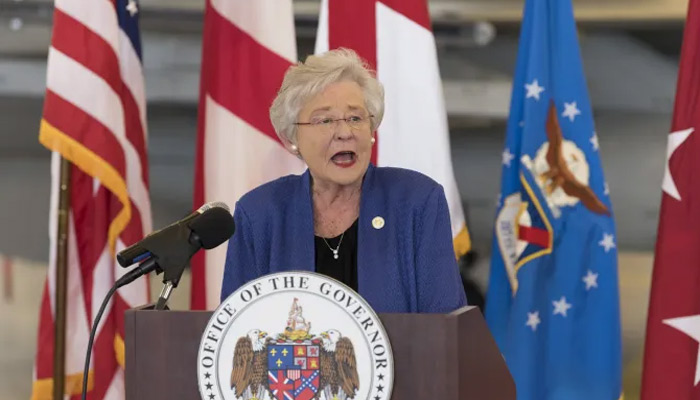Alabama Governor Kay Ivey signed into law on Wednesday a ban on diversity, equity and inclusion programs in public schools, making the state one of a few to enact broad measures against what she and other Republicans call a leftward tilt in U.S. education.
The bill, which passed Alabama’s Republican-led legislature on Tuesday, bans public schools from maintaining diversity, equity and inclusion offices or teaching what the bill calls “divisive concepts” about race and identity, such as that of holding people of one race responsible for actions committed by the same racial group in the past.
It also requires public institutions of higher education to designate bathrooms only for males or females, a move that counters transgender rights advocates’ push for gender-neutral bathrooms.
“My administration has and will continue to value Alabama’s rich diversity. However, I refuse to allow a few bad actors … go under the acronym of DEI, using taxpayer funds, to push their liberal political movement,” Ivey said in a statement.
The law is due to take effect in October.
Republicans have rallied around opposition to DEI initiatives in US schools, asserting that diversity-focused curricula and hiring practices are part of a liberal agenda to sow division and, in some cases, to discriminate against white people. Supporters of diversity, equity and inclusion initiatives say they aim to promote equality for underrepresented groups.
“This is not only a form of classroom censorship,” the American Civil Liberties Union of Alabama said in a statement opposing the legislation. “It’s an anti-truth bill which curtails education on systemic inequities, racial violence, and the historic efforts to gain civil rights and civil liberties for marginalised communities throughout our nation’s history.”
Texas led the charge with anti-DEI legislation by forcing public schools to close their diversity offices last year. Utah’s governor signed similar legislation earlier this year, and several other states have introduced anti-DEI bills during their current legislative sessions.

